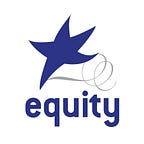SPEAK FOR YOURSELF — CONNECTING THROUGH CONVERSATION
Whether you’re speaking with a casting person, director, fellow actor or other colleague, informal conversation can lead to powerful connections in your working life. Communication coach Anna McCrossin-Owen suggests strategies that will help you make the most of these important opportunities.
Have you noticed that, as actors and creatives, we regularly speak about ourselves and our work? This may happen more often and be more impactful than you think. Informal conversation can create a powerful connection. I believe such opportunities are often left to chance. Chats to camera and meetings with agents involve skills that can be developed and practised. Here are some strategies to help you enjoy and use these informal opportunities to connect.
Connect professionally through informal communication
In acting, we explore connection − to self, to fellow actors, to the audience. You can also do this through the informal, incidental speaking that surrounds your work. Notice the types of informal chats in your workday and you might find yourself:
• Providing an update on what you’ve been doing or are going to do.
• Explaining what a project is about.
• Asking about the other person. You can connect via work or something totally unrelated and come away with a new potential colleague or supporter.
• Advocating for yourself and your work.
Notice how you feel
How do you feel when speaking about yourself and your work: anxious; proud; awkward; braggy? How do you feel when you are talking to your coach, director and fellow actors? Is it the same as when you talk to agents, casting agents, crew, writers, investors and producers? Or to people outside the industry? When are you most comfortable? Use this feeling.
Always be yourself
Sounds obvious, but consider this… You’re heading to an important meeting or an opening night. Which aspect of your ‘self’ is appropriate to the situation? Is it your kooky, fun self? Your professional, no-nonsense self? Your ‘I’m a collaborative artist’ self? Your ‘I admire your work and I’m very pleased to meet you’ self?
Control what you can — no more, no less
Do your research. Who will you be talking to? Who might you run into at an event? Find out about the person, if you can: Google them; ask colleagues; find out if you have any colleagues in common. Prepare by asking yourself these questions:
• What effect do I want to have on the other person? What is my desired outcome for this conversation?
• What do they know about me? Nothing? Or something?
• How do I want to begin and comfortably end?
• What points do I want to make about myself and my work?
Remember that it’s a conversation − you’ll have some control, but not all. It’s a bit like jazz or an improvisation class. Don’t push.
Use proactive and specific language
Consider the difference between the following answers to the question: so, what are you doing at the moment?
• Nothing much, just a few auditions.
• Oh, the short film I did is starting to get some bites from online festivals.
• I’ve been doing some work on Neighbours — can you believe it’s finished after 30+ years! It’s been such a great employer for so many performers and crew − our industry’s really going to miss it.
• I’m between jobs at the moment, but the last role I played was really satisfying.
Now consider the difference between these answers to: you’re an actor. Oh, what have you been in?
• Nothing you would have seen.
• I work in the independent theatre sector. Do you like to go to independent theatre?
• I’m not in the public eye yet, but I’m getting some great opportunities to audition. And I’m developing an online comedy series. What’s your favourite comedy show?
• A TV series I was in has just been nominated for an award.
Rehearse different scenarios
Ask a trusted friend to join you for some roleplay, such as:
• Chatting to a casting person.
• Speaking to a potential creative partner.
• Chatting to a potential work colleague.
• Answering a difficult question.
• Exploring slates/chats to camera and chatting in auditions.
Most of all, enjoy!
Anna McCrossin-Owen is a voice, dialect and presentation coach, who trains speakers and journalists for live and video presentations, voiceover and podcasts. Presenters/speakers include Fairfax Digital/The Age/Domain, Channel 9 − The Block, Channel 7, 3AW, Bunnings podcast, business and higher education. She has trained and mentored creatives in personal and group communication since the 1980s.
